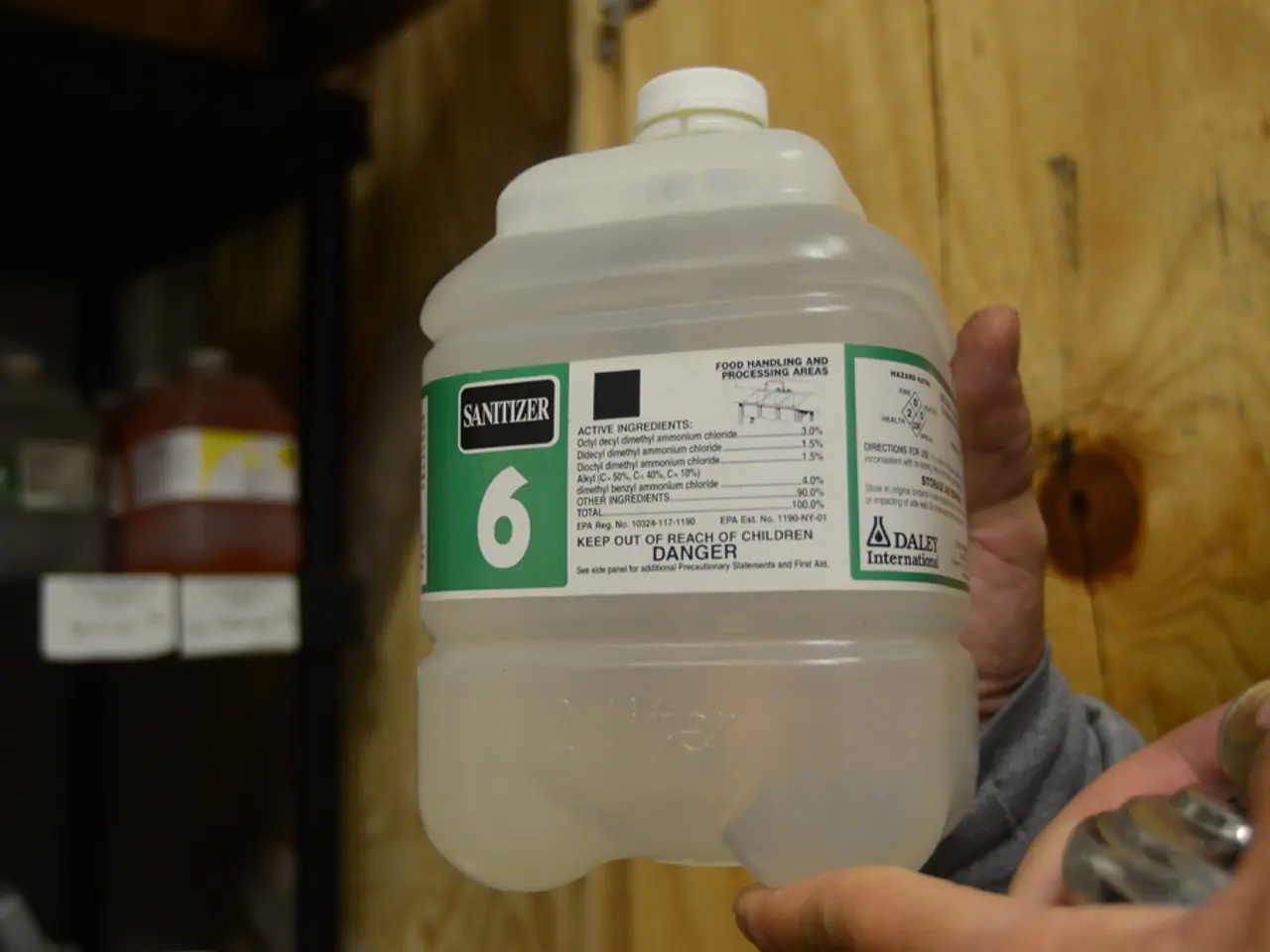Top Shampoos for Managing Psoriasis: Exploring Varieties and Their Impact on the Scalp
Scalp psoriasis, a long-term inflammatory condition affecting the skin and other parts of the body, can cause discomfort and affect one's appearance. Fortunately, various treatments are available, including over-the-counter (OTC) and medicated shampoos containing common active ingredients such as salicylic acid, coal tar, and clobetasol propionate.
Each ingredient offers unique benefits and limitations, making it essential to understand how they work and their potential side effects.
Salicylic acid, a keratolytic agent, helps soften and shed the outer layer of thick psoriasis scales on the scalp, improving the skin's ability to absorb other topical treatments. It primarily aids in reducing scaling and flaking, making the scalp less scaly and easier to cleanse. However, it can cause skin irritation if left on too long and may weaken hair follicles leading to hair thinning or loss.
Coal tar, on the other hand, works by slowing the rapid growth of skin cells and affecting abnormal cell proliferation in psoriasis. It also has mild antiseptic properties that may reduce bacteria and inflammation. Coal tar helps with itching, scaling, flaking, redness, and irritation. However, it might irritate skin and has an unpleasant odour that some find unpleasant. It may also cause photosensitivity, requiring sun protection during use.
Clobetasol propionate is a potent topical corticosteroid that reduces inflammation, itching, and redness by suppressing immune responses that drive psoriasis flare-ups. It provides rapid relief of inflammation, itching, and redness, often used for flare control. However, prolonged use can cause skin thinning, resistance, or rebound flare-ups, and it is usually prescribed for short-term or intermittent use by a healthcare provider.
While these shampoos can help manage psoriasis on the scalp, it's essential to note that they are intended to treat the scalp, not to clean the hair. If OTC shampoos or medicated shampoos do not help, a person should consult a doctor. A person should leave psoriasis shampoo on the scalp for 5 to 10 minutes before washing it off, and those with a sensitive scalp may only be able to apply it about twice a week.
In moderate to severe cases of scalp psoriasis that do not respond to other treatments, a doctor may recommend systemic treatment. This includes biologic drugs, which affect a specific part of the immune system, to treat the underlying cause. Calcipotriene, a form of vitamin D3, can also reduce the itching and redness associated with scalp inflammation.
Pregnant or nursing individuals should consult a doctor about treatment options during pregnancy, as their usual treatment regimen may need adjustments. Dithranol, a plant-based treatment, may help treat psoriasis but can stain the hair and skin.
If symptoms do not improve after 8 weeks of using a psoriasis shampoo, alternative options should be considered. A person experiencing new symptoms of scalp psoriasis should consult a doctor. Light therapy, specifically UVB treatments, may help treat scalp psoriasis with fewer side effects than some medications.
- For individuals suffering from scalp psoriasis, seeking treatment is crucial as this chronic-disease causes discomfort and can affect appearance.
- Among various treatments available, over-the-counter (OTC) and medicated shampoos containing active ingredients such as salicylic acid, coal tar, and clobetasol propionate can offer relief.
- Salicylic acid, a keratolytic agent, aids in reducing scaling and flaking, softening thick psoriasis scales, and improving skin's ability to absorb other topical treatments.
- However, it may cause skin irritation if left on too long or weaken hair follicles leading to hair thinning or loss.
- Coal tar, on the other hand, works by slowing down skin cell growth and reducing inflammation, helping with symptoms such as itching, scaling, and redness.
- Still, it may irritate skin and have an unpleasant odor, potentially causing sun sensitivity.
- If OTC or medicated shampoos do not help, or in moderate to severe cases, medical-conditions like scalp psoriasis may require systemic treatments like biologic drugs, light therapy, or Calcipotriene.




